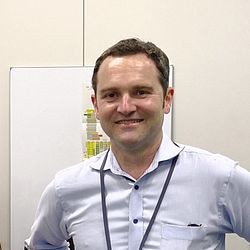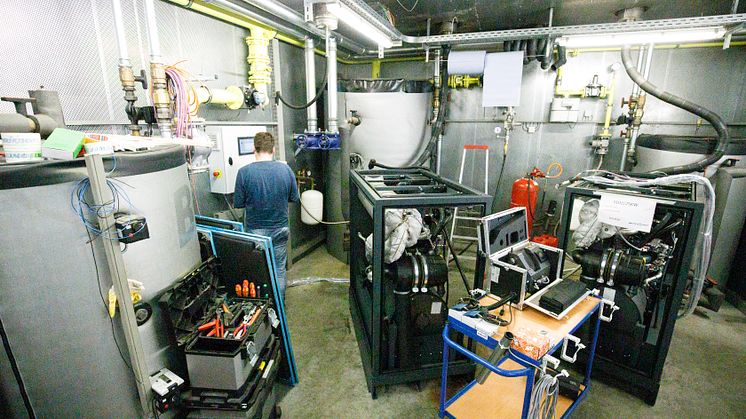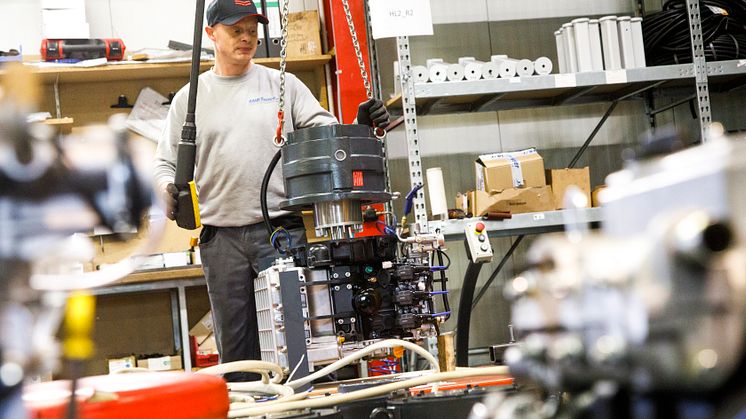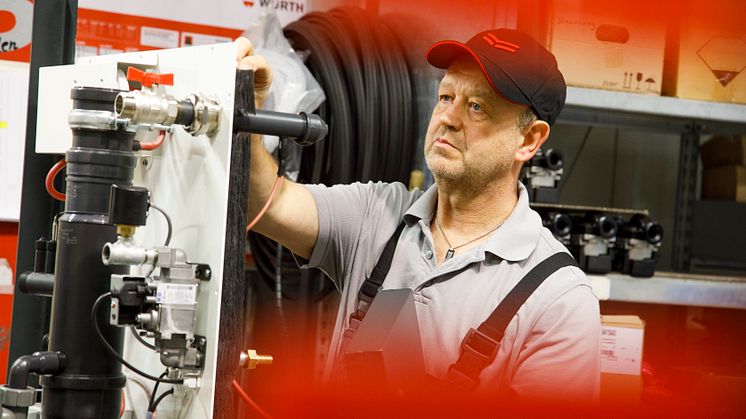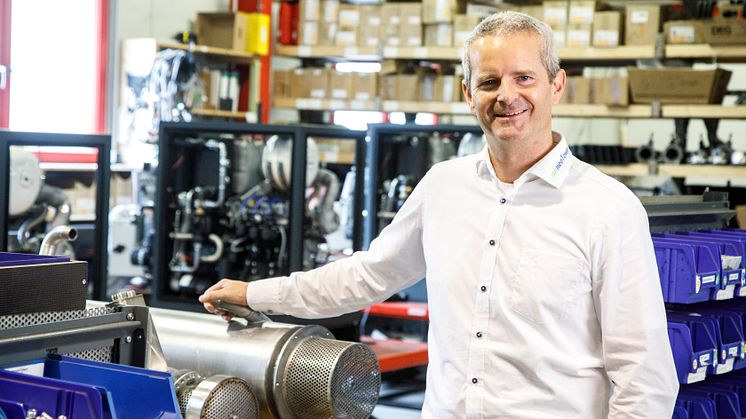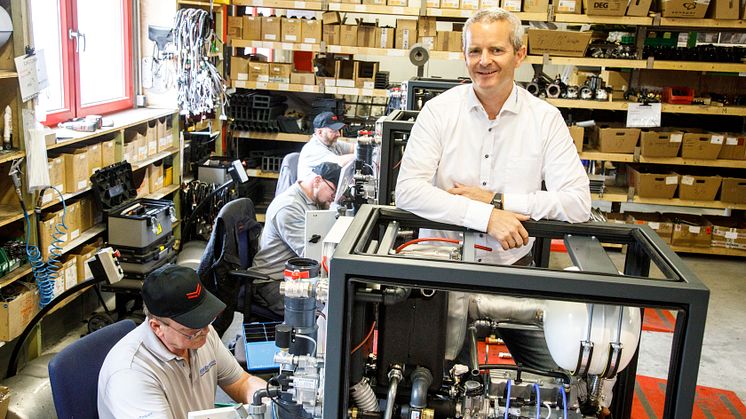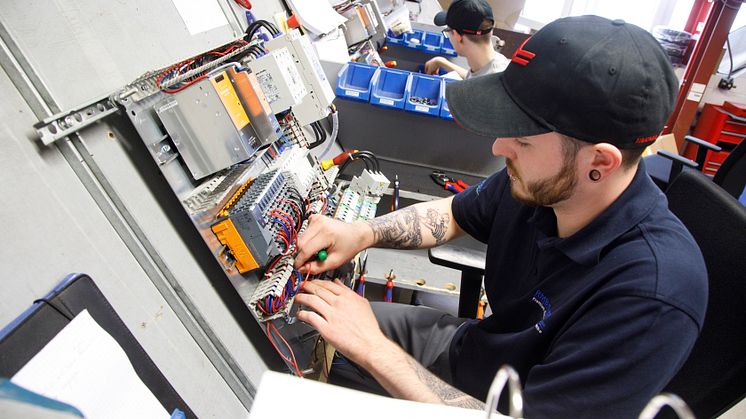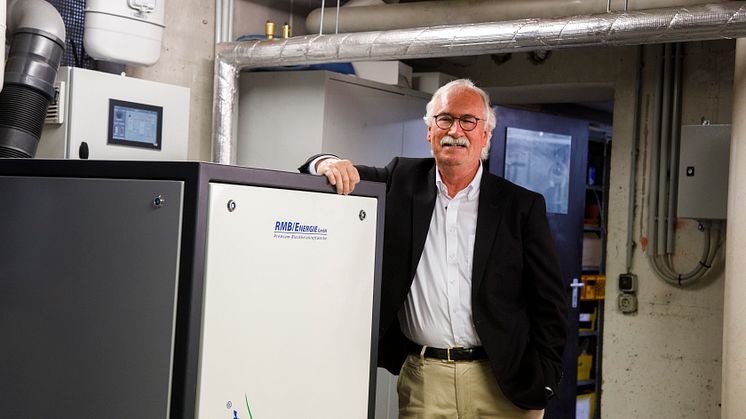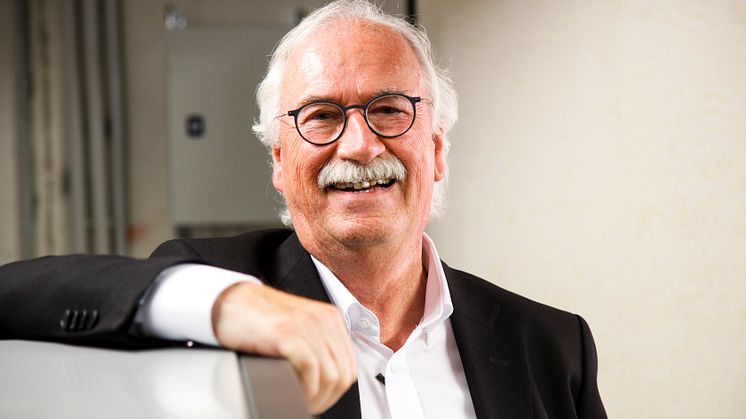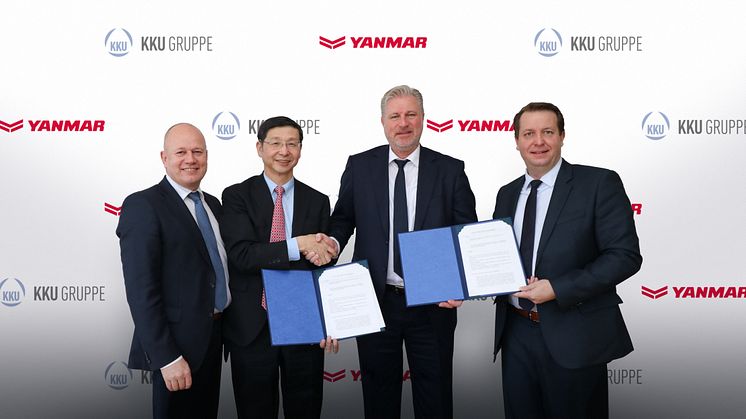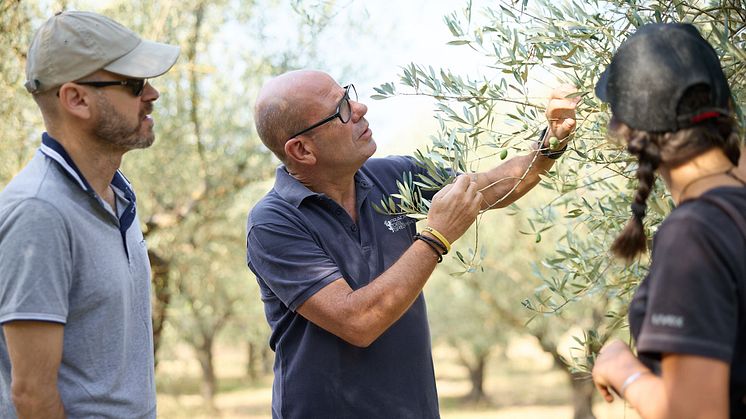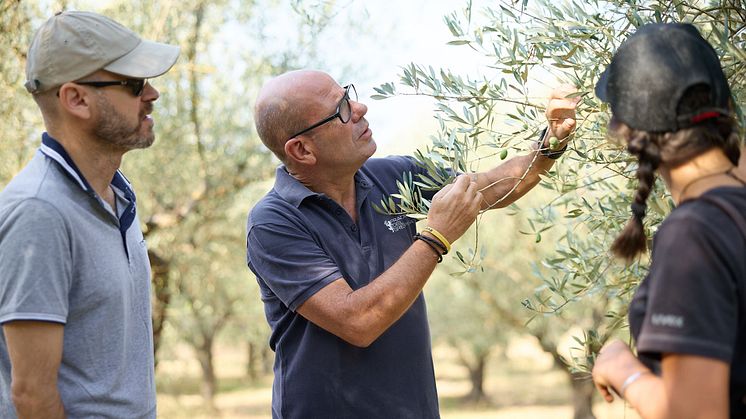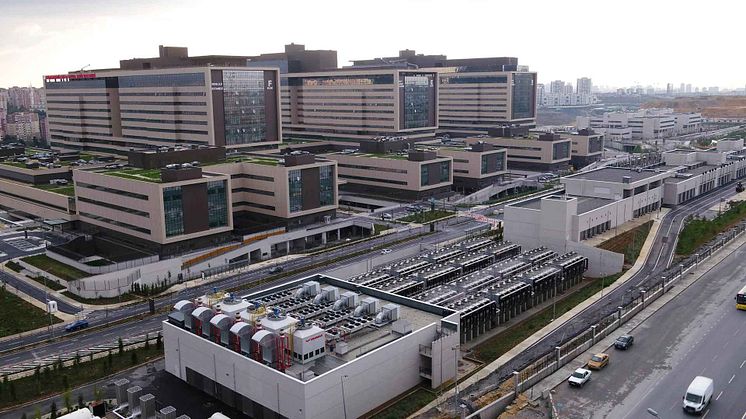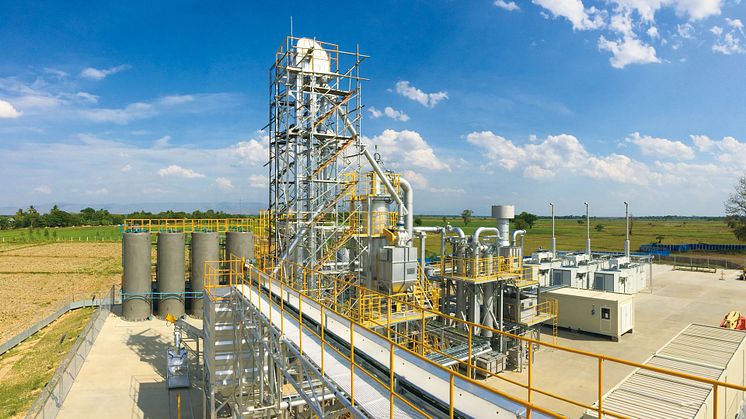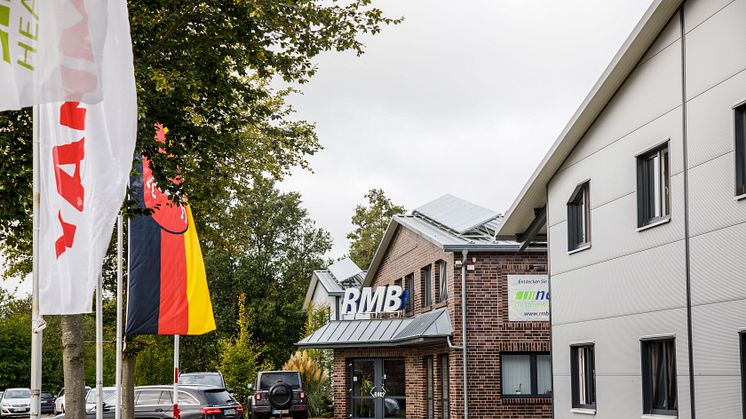
News -
Efficient Generation for Sustainable Power
A move away from traditional coal and nuclear energy has created significant opportunities for combined heat and power generation (CHP). Companies such as Yanmar are providing low carbon solutions that are becoming an increasing part of the energy mix.
Countries across the world are finally taking much larger steps to reduce their carbon footprint. Chief among these is Germany, which is now going even further by turning its back on coal-fired and nuclear-powered generation.
Ambitious targets
As such, heavy-polluting coal plants across the nation are being closed and nuclear power is being phased out by 2023. This offers potential on the one hand for the creation of fast-reacting natural gas plants that fire up quickly to ensure a stable energy supply.
On the other hand, there are significant benefits on a micro-generation level with combined heat and power (CHP) units such as Yanmar’s ‘neoTower’ being installed in many businesses and homes. They create energy for self-use and feed any excess back into the grid. These efficient gas engine power plants can play an important role in the future energy mix.
In brief, CHP units run on clean natural gas, which they use to generate electricity and heat. They gain their high energy efficiency by capturing and using the excess heat that comes from the engine during electricity generation, as the single fuel source provides both heat and electricity. By generating directly (and locally), grid transmission losses are avoided, which also increases the energy efficiency and lowers the carbon emissions.
The German Government believes that CHP is the best way forward to help decarbonise its economy. In addition, it overcomes the potential problems of intermittent supply to the grid.
As such, Germany has enacted the CHP law to support cogeneration by boosting the number of highly efficient CHP plants in Germany. It also rewarded owners of CHP systems with significant financial bonuses lasting up to ten years for the electricity generated via their cogeneration ‘plants’. This support has made consumers and businesses keen to install ultra-efficient low-carbon generation solutions in their homes and workplaces.
Gas-powered technology for a better world
Yanmar has a long-standing reputation for providing quality sustainable power solutions to a variety of industry sectors, from marine to agriculture, and from power generation to air conditioning. It has established a new company in Germany, Yanmar Energy Systems Europe, to provide a full manufacturing, sales and service solutions for a range of heating, ventilation, air-conditioning (HVAC) and power generation requirements.
With a mission to deliver clean and efficient CHP solutions to customers in Germany and throughout Europe, Yanmar is already making sufficient strides in helping German consumers reduce their energy carbon footprint, according to Chief Executive Officer Yosuke Tajima.
“Our mission is to provide optimal heat and power solutions to customers throughout Europe. Demand for power continues to rise, along with a significant need to reduce CO2 emissions. CHP is recognised as highly efficient, which is why the German Government is supporting it with customer incentives to divest from carbon-intensive generation. Yanmar’s highly efficient solutions will help meet the challenges of the future.”

Yanmar Energy Systems Europe CEO Yosuke Tajima (left) and CHP units undergoing testing.
Reliable partners for added value
The Yanmar Group also acquired a majority holding in RMB AG (RMB), a major German provider of industry-leading CHP units. This ensured that its efficient gas-powered solutions are not only meeting customer needs, but also supporting Germany’s energy policy goals.
The strategic goal with RMB is the joint development of cogeneration units with Yanmar engines. It also aims to continue its market leadership of the micro-CHP sector, combining the best of Japanese and German manufacturing with unrivalled technological expertise.
It’s a perfect match for RMB’s General Manager Jens Brake, who has been instrumental in promoting CHP’s role in the energy mix. An engineer by trade, he designed his first CHP system in 2008 and helped to bring RMB’s revolutionary neoTower unit to the market three years later. In 2015, the first cogeneration units with Yanmar engines were unveiled, available with an electrical capacity of 25 and 30kW.
“Combined heat and power is the best current solution for today’s energy needs in both the commercial and domestic sectors,” says Jens. “From a business perspective, if you compare it to the other energy sources, the biggest driver is the cost savings for customers. Essentially, they are producing electrical power and heat with their own power plant – and doing it at a low cost.”

Jens Brake (right), General Manager of Yanmar subsidiary RMB
A spark of genius?
This business model is known as ‘Sparkspread’, which is basically the difference between the cost of producing and using your own energy, compared to the cost of buying it. In the case of a CHP unit, owners in Germany are paying roughly four euro cents for one kilowatt hour of natural gas. This is then used to create electricity (for their own use) that would otherwise have cost them around 28 cents per kilowatt hour to buy.
Therefore, for many people it’s not entirely about saving the planet. This is because the cost savings from these reliable, highly efficient units do stack up, with a return on investment in less than four years in some cases.
The proof is with the customer
A good example may be found at a typical customer installation: the Sportpark Hilden, near Düsseldorf, which is one of a successful chain of fitness centres that have been in operation since 1977. Its owner, Hans Buschmann, didn’t need too much convincing about the benefits of CHP, having installed several units at various sports centres before. However, the Sportpark Hilden’s constantly increasing requirement for heat and power around the clock, 365 days of the year, made him choose wisely.
“We’re open 16 hours a day every day and need energy constantly for heating the swimming pool, showers and saunas, as well as our electrical power requirements,” says Hans.
“We installed the latest neoTower30 CHP system, because of the obvious ecological and financial benefits, and the ability to produce our own energy where it is needed. We have a responsibility to our customers to work ecologically, but it’s also in the interests of our company to be cost-effective.”
With its busy peak periods running throughout the year, especially during the winter season, CHP was the most efficient option. Furthermore, it was the CHP’s additional benefit of being able to use excess heat as an energy source to warm the centre’s swimming pool and hot water (a constant, year-round energy demand) that made sound economic sense.
“The cost savings are significant – we’ve been able to reduce our energy bills by 50 per cent – and that makes a huge difference to the bottom line,” adds Hans. “Furthermore, the neoTower’s ease of operation, combined with long maintenance intervals, means that we don’t need to worry about it at all.
“In fact, with its quiet operation, we hardly know it’s there! We’ve used CHP for ten years with great success and see no better alternative at present. Based on our previous experience, we expect a return on investment in less than three-and-a-half years.”
Germany’s efforts to support companies and individuals that invest in energy-efficient technology have to be commended. As other nations make the transition to a low-carbon economy, CHP is expected to play a significant part in this, with companies like Yanmar committed to providing efficient and innovative co-generation technology for a more sustainable future.

Hans Buschmann (left), owner of Sportpark Hilden with his neoTower30 CHP system.
